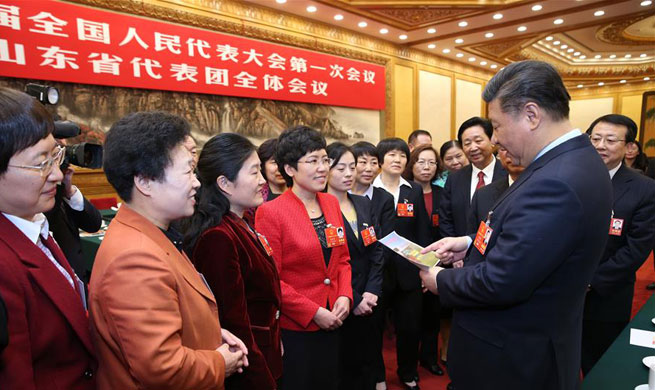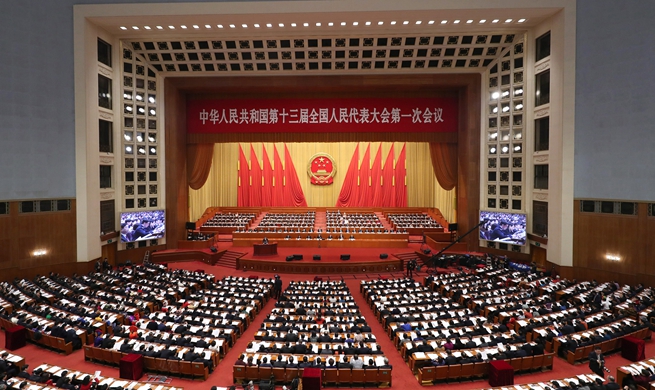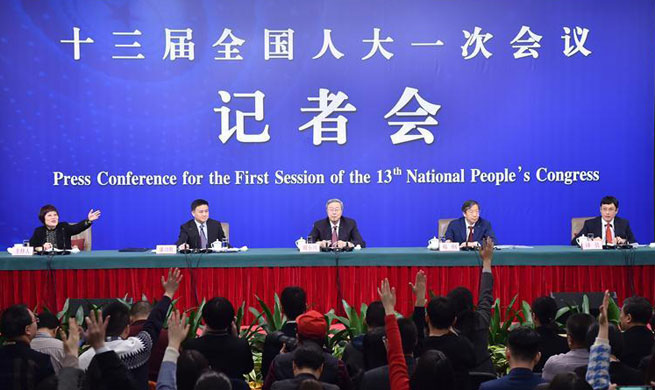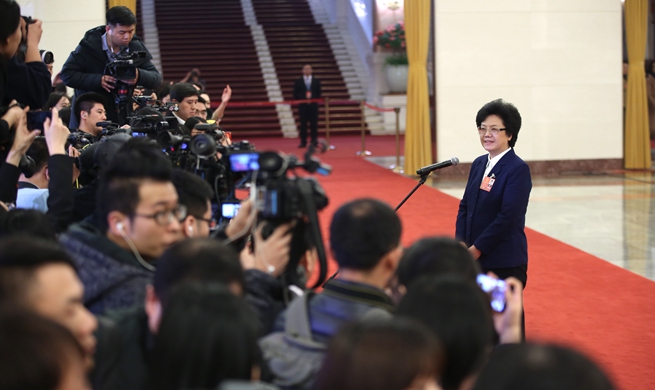HOUSTON, March 9 (Xinhua) -- The Belt and Road Initiative proposed by China has built an international platform for energy cooperation which benefits the economic development of the participating countries, the International Energy Forum chief has told Xinhua at CERAWeek, an annual energy meeting in Houston.
Energy cooperation is a unique way for the countries participating in the Belt and Road Initiative to achieve economic growth and energy security at the same time, said Xiansheng Sun, secretary general of the IEF in an exclusive interview with Xinhua.
"The cooperation can also help substantially improve the living standards of those countries, create large volume of jobs and train professionals," Sun added.
He said he believed that the Belt and Road Initiative closely connects with the global energy governance. "Building a community of shared future in the field of energy is the common interest for all the participating countries," he noted.
Looking into the future, Sun believed the IEF provided a feasible platform for all members to share information, build trust and address common challenges, such as sustainable development, climate change and energy security.
"People to people exchange is vital for the implementation and promotion of energy projects in different countries. With the help of IEF, China has more opportunities to communicate with Belt and Road related countries to further carry forward energy projects that are beneficial for all," Sun commented.
Talking about energy security of China, Sun argued that China should emphasize international cooperation and energy efficiency at the same time.
Since 68 percent of the oil and more than 39 percent of the natural gas used in China nowadays are imported, the ability to be self-reliant will be hard to achieve, Sun said.
The international cooperation comes through the state-run companies and private companies that have an investment in China, as well as other companies worldwide, the secretary general said.
Sun said big changes in the energy industry have emerged with substantial contributions that shale oil and gas bring to the market.
America's increased oil production, in large part shale oil, has brought big changes to the industry. These changes have enabled China to reduce its imports from the Middle East in favor of the shale oil, Sun said.
"The production center moves to the west and the consumer center moves to the east," the secretary general said.
Another factor that can help China ensure its energy security is improved energy efficiency. If China can reduce its energy consumption by about 50 percent it would move close to Germany in energy efficiency, Sun said.
"That's a real big number. Of course, it's a long way to go for China, including paying efforts in awareness of energy efficiency and some other education, for example, urging people not to choose big house or big car."
The 72-member IEF is a neutral facilitator of informal, open, informed and continuing global energy dialogue. Accounting for around 90 percent of global supply and demand for oil and gas, it aims to foster greater mutual understanding and awareness of common energy interests among its members.
CERAWeek is an annual energy meeting held by the London-based information company IHS Markit featuring prominent speakers from energy, technology and financial sectors. This year's meeting, which kicked off Monday in Houston, was attended by more than 3,000 guests from over 50 countries and regions.

















